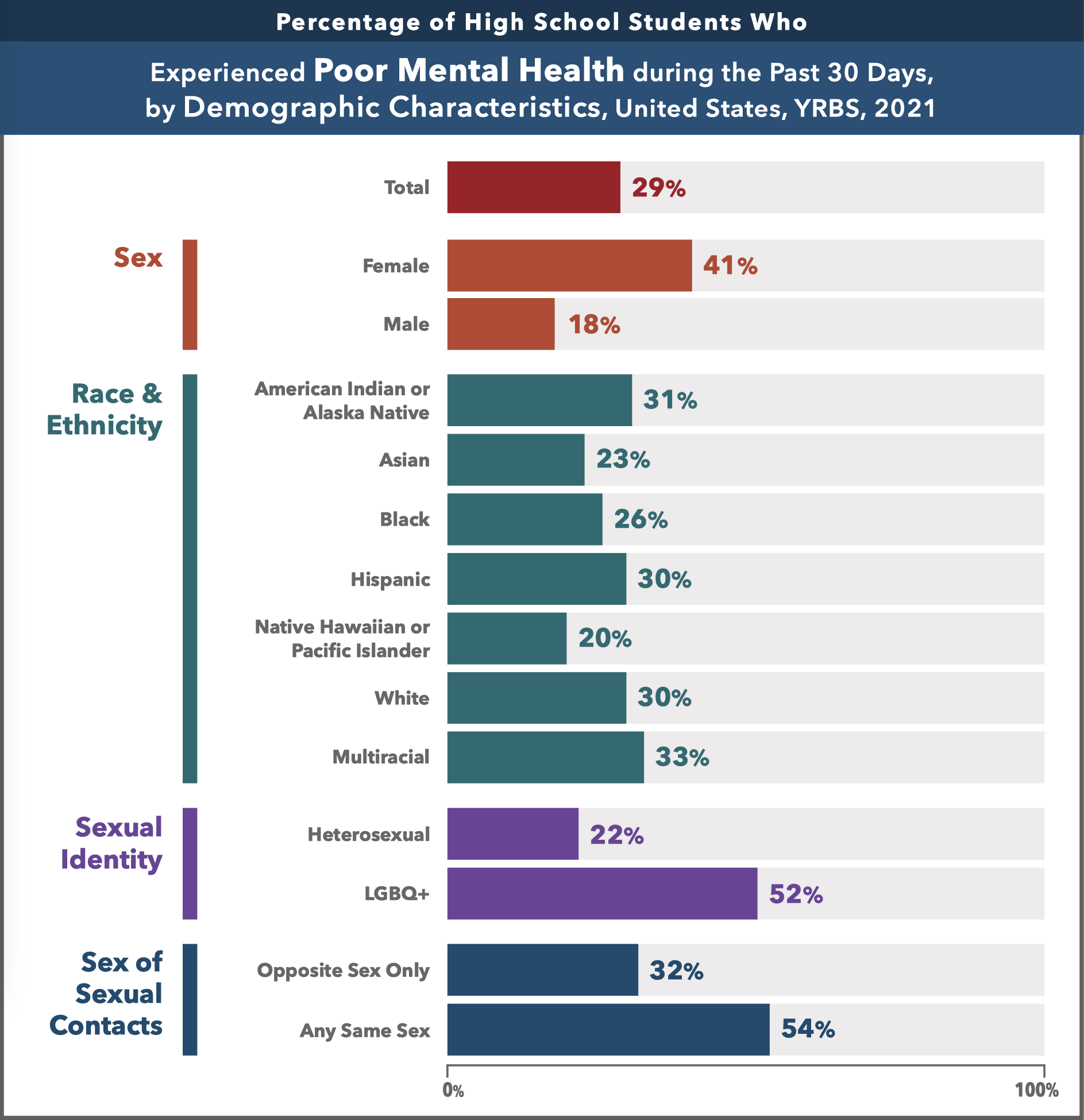CDC study reveals mental health crisis among high school students; tips for parents
By Rebekah Hall
U of A System Division of Agriculture
March 16, 2023
Fast Facts:
- Nearly 3 in 5 teenage girls experienced persistent sadness, hopelessness in 2021
- COVID-19 pandemic, social isolation, increased phone usage are contributing factors
- Parents of teens should pay close attention to changes in mood, behavior
(650 words)
(Newsrooms: With art at https://flic.kr/p/2ondRKP)
With sidebar: 03-16-2023-ark-teens-building-trust
LITTLE ROCK — Many of today’s teenagers are facing a mental health crisis. A new study by the U.S. Centers for Disease Control and Prevention found that in 2021, 42 percent of high school students experienced persistent feelings of sadness or hopelessness, including 57 percent of teenage girls.

Brittney Schrick, extension assistant professor and family life specialist for the University of Arkansas System Division of Agriculture, said the COVID-19 pandemic is a major contributing factor to mental health issues among teens.
“I think the elephant in the room is COVID,” Schrick said. “It is a collective trauma, a collective stressor, and it was such a prolonged stressor that continues today. People lost family members, and they were away from support networks for extended periods of time. For any student who had or has an unstable or stressful home life, or experienced food insecurity, that would add an extra layer of stress.”
Though these teens — many of whom were in middle school when the pandemic began — were able to adapt and get through the experience, relying solely on resilience is harmful, Schrick said.
“Resilience is a really important concept, but I think that to a large extent, we have over-emphasized how resilient kids are,” Schrick said. “Because ultimately, they shouldn’t have to continue being resilient about everything.”
According to the CDC study, female high school students and LGBTQ+ students were “more likely than their peers to experience poor mental health and suicidal thoughts and behaviors.” In 2021, nearly 70 percent of LGBTQ+ students experienced feelings of sadness or hopelessness. Schrick said some of this can be attributed to current cultural conversations concerning these groups.
“The high rates of suicide attempts, self-harm and mental health concerns among LGBTQ young people and among adolescent girls is a reflection of the turmoil in the culture surrounding those groups,” Schrick said. “Having consistent discussions surrounding legal rights and future prospects for both of those groups is going to contribute to mental health concerns for these youth.”
“They need support and grace”
Schrick said it’s important for adults to realize that the COVID-19 pandemic had a significant impact on the emotional maturity of today’s teenagers.
“I’m around a lot of youth, and they are not as mature as they would be if COVID had never happened,” she said. “If we compare these kids to the kids pre-COVID, they are not the same. Socially, a 16-year-old right now is closer to a 14-year-old.”
Schrick said giving teenagers specific action steps, then letting them know what they need to do next, will be helpful, as “one of the things this group has suffered cognitively is planning, because they’ve never been able to.”
“When they planned, all the plans changed, so they have not gotten to stretch that planning muscle and learn how to do it,” she said. “Everything feels like it’s temporary.”
For adults who are working with today’s teens or will once they enter college or the workforce, Schrick said it’s critical to understand that “it’s not a character flaw, it’s a collective trauma.”
“These kids have been through the wringer,” she said. “It’s really hard to be a teenager right now. I think all we can do as future employers, as parents, as aunts and uncles and mentors, is keep in mind that they’re going to need some help, and it doesn’t make them weak, bad or lazy. They need support and grace.”
Learning to help
The Cooperative Extension Service offers QPR — Question, Persuade, Refer — Suicide Prevention training geared toward all audiences, as well as Mental Health First Aid training. More information about both programs is available on the extension Personal and Family Well-Being website. Contact your county Family and Consumer Sciences agent for more information.
The National Suicide Prevention Lifeline also provides 24/7, free and confidential support for people in distress. Call 988 or visit the 988 Suicide & Crisis Lifeline website for support and prevention and crisis resources.
To learn about extension programs in Arkansas, contact your local Cooperative Extension Service agent or visit www.uaex.uada.edu. Follow us on Twitter and Instagram at @AR_Extension. To learn more about Division of Agriculture research, visit the Arkansas Agricultural Experiment Station website: https://aaes.uada.edu. Follow on Twitter at @ArkAgResearch. To learn more about the Division of Agriculture, visit https://uada.edu/. Follow us on Twitter at @AgInArk.
About the Division of Agriculture
The University of Arkansas System Division of Agriculture’s mission is to strengthen agriculture, communities, and families by connecting trusted research to the adoption of best practices. Through the Agricultural Experiment Station and the Cooperative Extension Service, the Division of Agriculture conducts research and extension work within the nation’s historic land grant education system.
The Division of Agriculture is one of 20 entities within the University of Arkansas System. It has offices in all 75 counties in Arkansas and faculty on five system campuses.
Pursuant to 7 CFR § 15.3, the University of Arkansas System Division of Agriculture offers all its Extension and Research programs and services (including employment) without regard to race, color, sex, national origin, religion, age, disability, marital or veteran status, genetic information, sexual preference, pregnancy or any other legally protected status, and is an equal opportunity institution.
# # #
Media Contact:
Rebekah Hall
rkhall@uada.edu
@RKHall_
501-671-2061